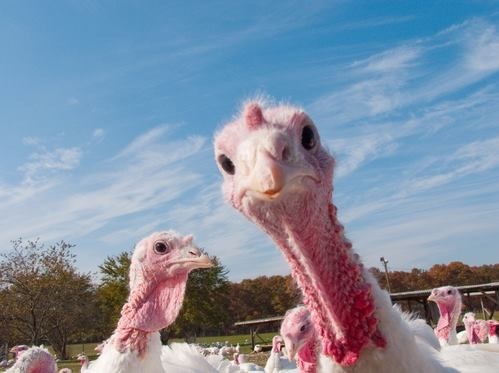
Image Credit: shutterstock.com
February 04, 2015 - 7:00 AM
VANCOUVER - It could be as late as June before British Columbia farms are declared free of the avian flu, but recovering from the international trade implications may take far longer, an expert says.
Robin Horel, head of the Canadian Poultry and Egg Processors Council, said a clean bill of health from the Canadian Food Inspection Agency is "just the beginning" and that more work will be needed to resume overseas trade.
Once the 11 infected commercial facilities in B.C.'s Lower Mainland are cleaned and disinfected, Horel said the CFIA imposes a 21-day restriction before allowing birds back into barns.
Restocking is followed by a three-month surveillance period, after which a farm can be labelled free of the avian flu.
"(But) the 90-day clock hasn't wound yet because we're still working on some of the premises," said Horel, adding that so far only half the farms have been fully cleaned.
B.C. Poultry Association president Ray Nickel said he expects the remaining half to be completed by the end of the week.
The number of countries that have imposed trade restrictions on B.C. poultry products has quietly climbed to more than two dozen since the H5N2 influenza was first detected in two Fraser Valley farms in early December.
Taiwan, Hong Kong, Japan and South Korea were the first four to impose bans, with the United States, Mexico and South Africa quick to follow suit.
Since then, varying restrictions have been introduced by the Philippines, Singapore, the United Arab Emirates, Russia, Guatemala, St. Vincent and the Grenadines, Dominica, Morocco, Saudi Arabia, Australia, Brazil, Barbados, the European Union, Venezuela, Colombia, China and Vietnam.
Between January and October of last year, the total value of the now-banned exports to those jurisdictions surpassed $45 million, with the U.S., Taiwan and the Philippines making up the bulk of that trade.
South Korea, Morocco, Saudi Arabia, Mexico, Barbados, Colombia and Vietnam were not importing poultry or poultry products prior to the restrictions. But of those 24 countries, a majority placed a blanket ban on varying poultry products from across Canada.
"It's frankly ridiculous to ban product out of Ontario, for example, when the issue is 3,000 kilometres away," Horel said.
Prior to December, B.C.'s last significant avian flu scare occurred in 2004, when a highly pathogenic strain led to the culling of 17 million birds.
It took more than a year for international trading bans to be lifted, said Horel, adding that he anticipates a faster turnaround this time.
"I'd say the reaction of trading partners is getting better. They seem to understand that it is … an animal disease. There's certainly no risk of transmission," he said.
"They also seem to have a bit better understanding of how big Canada is."
Horel added that the Market Access Secretariat — a branch of the CFIA — will collaborate with industry to re-open international markets.
In terms of compensation, Nickel, of the province's poultry association, said farmers whose birds were euthanized would be reimbursed by the CFIA on a per-animal basis.
The federal government imposed an avian flu control zone over the entire southern half of B.C. in early December.
News from © The Canadian Press, 2015